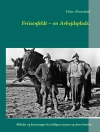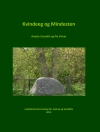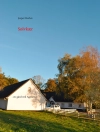This book looks at the New Urban Agenda and prospects of its implementation. In 2016, the New Urban Agenda was endorsed by the General Assembly of the United Nations after having been adopted by the United Nations Conference on Housing and Sustainable Urban Development (Habitat III) in Quito, Ecuador. Together with the Sustainable Development Goals, it provides a comprehensive and ambitious roadmap for global debate and action related to sustainable urbanisation during the coming decades. As mature economies and ageing societies, Japan and Germany can make considerable contributions to the implementation of the New Urban Agenda. Both countries share a number of similar challenges for environmentally sustainable and resilient urban development under conditions of social change. Furthermore, they have vast experience in actively promoting urban transformation towards a more sustainable urban future. At the same time the authors are making a contribution towards implementing the New Urban Agenda. Other countries may build up on the experience provided and the 20 examples described in this book. The work is based on a longstanding cooperation between the Graduate School of Environmental Studies of the Nagoya University (Japan), the Leibniz Institute of Ecological Urban and Regional Development (Germany) and the Technische Universität Dresden (Germany).
Table of Content
Chapter 1. The Transition Towards Sustainable and Resilient Cities—Urban Challenges and Solutions in Germany and Japan.- Part I: Landscape Change and Management.- Chapter 2 Dialectic Developments of ‘City’ and ‘Country’ in Japan’s Metropolitan Regions.- Chapter 3. Urban Ecosystem Services and Biodiversity Offsets.- Chapter 4. Sustainable Landscape Management and Landscape Management Labor Accounts.- Part 2: Climate Change and Urban Green.- Chapter 5. Modeling the Current and Future Urban Climate Using Downscaling Techniques.- Chapter 6. Urban and Green Planning Based on an Evaluation of Urban Climate.- Chapter 7. Demands, Opportunities and Constraints of Green Space Development for Future Urban Development under Demographic and Climate Change.- Part 3: Environmental Risks in Urban Areas.- Chapter 8. Environmental Risks in Urban and Regional Development -Assessing the Effects of Flood Resilience Technologies.- Chapter 9. Flood Risks and Their Management in Urban Japan—Modeling Inner Flooding in Tsushima City, Tokai Region.- Chapter 10. Pre-reconstruction Plans for Urban Areas in Japan.- Part 4: Built Environment and Material Flow.- Chapter 11. The Efficiency of Settlement Structures.- Chapter 12. Weight of Cities—Material Stock and Flow Analysis Based on Spatial Database over Time.- Chapter 13. Preservation and Utilization of the Urban Heritage of East Asia and Japan.- Part 5: Urban Energy Concepts.- Chapter 14. Revolution of Urban Energy System.- Chapter 15. Building Energy Management: Performance Verification and System Simulation.- Chapter 16. A New Concept for Air-Conditioning in Japan: An All-Air Supplied Induction Radiant Air-Conditioning System and Cool Room.- Part 6: Future Challenges of Planning.- Chapter 17. Operationalizing Urban Resilience—Learning from the Past while Preparing for the Future. The Case of Dresden, Germany.- Chapter 18. Reconsidering Urban Planning through Community-based Initiatives.- Chapter 19. Planning of Public Facilities in Japanese Communities Facing Demographic Decline and Super-Aging.- Chapter 20. Developments in Urban Planning by Public Facilities Management Based on Regional Characteristics.- Chapter 21. Identifying Gaps and Opportunities for Research on Urban and
Regional Resilience—Highlighting the Advantages of Research Cooperation.
About the author
Hiroyuki Shimizu is an emeritus professor of Nagoya University. He studied architecture at the Faculty of Engineering of the University Tokyo and received the doctoral degree of Engineering ibidem. During his studies at the University Tokyo he obtained a fellowship of the German Academic Exchange Service (DAAD) to study for two years at the University of Hanover, Germany.
From January 1986 to August 1989, he taught architectural planning at the Faculty of Engineering of Chiba Institute of Technology as an instructor and associate professor. In September 1989, he moved to School of Engineering of Nagoya University as an associate professor, and became a professor in January 1996. In this period, he has developed his research fields not only in architectural planning but also in urban planning. In April 2001, he moved to the Graduate School of Environmental Studies due to university reorganization. This graduate school is a new integrated organization combining the inter-disciplinary academic fields of social sciences, engineering and natural sciences. Furthermore, it aims to solve both, global and local environmental issues from scratch. According to this academic policy, he expanded his new research field to landscape planning and management. The results of his studies are published internationally for instance in the following books:
Hiroyuki Shimizu, Akito Murayama (Eds.), Basic and Clinical Environmental Approaches in Landscape Planning, Springer, 2014
Hiroyuki Shimizu, Chika Takatori, Nobuko Kawaguchi (Eds.), Labor forces and Landscape Management -Japanese Case Studies, Springer, 2016
Especially in the latter book, he proposed a new concept of “landscape management labor accounts”, which is useful calculate labor forces needed for the appropriate maintenance of an ecological landscape.
Kurzfassung
Bernhard Müller, a geographer and planner, is the Director of the Dresden-based Leibniz Institute of Ecological Urban and Regional Development (IOER) and Professor for Spatial Development at the Technische Universität Dresden. He is a member of the German Academy of Science and Engineering (acatech), the Saxonian Academy of Sciences, and the German Academy for Spatial Research and Planning (ARL). He was a policy unit member for the Habitat III conference in Quito 2016.
(401 Zeichen ohne Leerzeichen, 473 mit LZ)
Langfassung
Bernhard Müller is the Director of the Dresden-based Leibniz Institute of Ecological Urban and Regional Development (IOER) and Professor for Spatial Development at the Technische Universität Dresden. He is also the initiator and head of the Managing Board of the internationally oriented Dresden Leibniz Graduate School (DLGS) which deals with issues of sustainable urban and regional development. Bernhard Müller has a doctoral degree in Geography from the University of Mainz, and completed his habilitation in urban and regional planning and development at the University of Hanover. He received an honorary doctoral degree from the Slovak University of Technology. His professional interests are in sustainable development as well as urban and regional resilience.
Bernhard Müller was a Vice President of the Leibniz Association, one of the major non-university research organisations in Germany. He is a member of the German Academy of Science and Engineering (acatech), the Saxonian Academy of Sciences, and the German Academy for Spatial Research and Planning (ARL). He is also an international member of the Serbian Academy of Engineering Sciences. He has been working as an evaluator for several European research programs. He was a member of the Advisory Council for Regional Policy and Planning of the Federal Republic of Germany, and of the Environmental Research Council of the State of Saxony. In 2015/16, he was a member of Policy Unit No. 6 on “Urban Spatial Strategies: Land Market and Segregation“ for Habitat III (Quito 2016).












